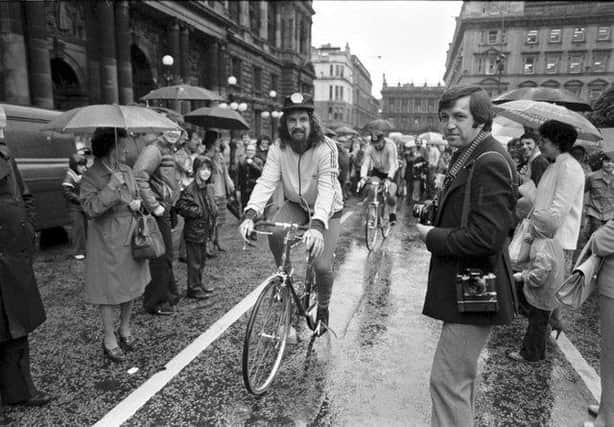The city’s industrial landscape was being rapidly altered. Defunct and disused docklands and shipyards littered the banks of the Clyde, while Clydebank’s world-famous Singer sewing factory, once a major employer in the Greater Glasgow region, also finally closed its doors following years of uncertainty.
In sport, frustrations boiled over towards the end of the 1980 Scottish Cup Final between Celtic and Rangers at Hampden Park. A riot broke out with dozens of supporters injured in violent scenes as mounted police struggled to quell the chaos. The shameful incident resulted in the permanent banning of alcohol at all Scottish football stadia.
But it wasn’t all doom and gloom. The city had a world lightweight boxing champion in Bridgeton-born fighter Jim Watt, local fizzy drinks legends Irn-Bru were celebrating their 150th birthday, while Glaswegians also enjoyed a revamped underground system with fancy new trains.
But it wasn’t all doom and gloom. The city had a world lightweight boxing champion in Bridgeton-born fighter Jim Watt, local fizzy drinks legends Irn-Bru were celebrating their 150th birthday, while Glaswegians also enjoyed a revamped underground system with fancy new trains.
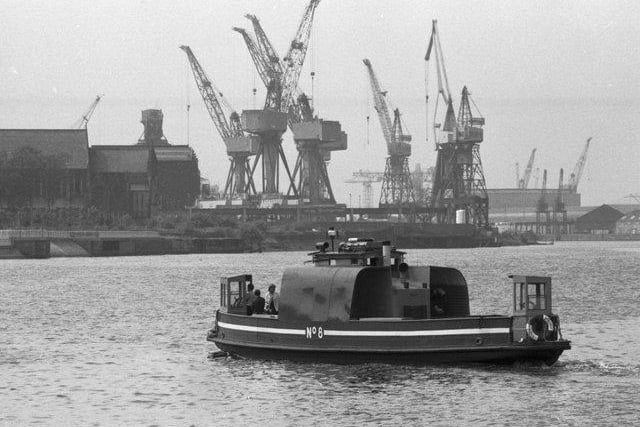
5. Glasgow in 1980
The Kelvinhaugh ferry crosses the River Clyde in Glasgow, June 1980. Photo: tspl
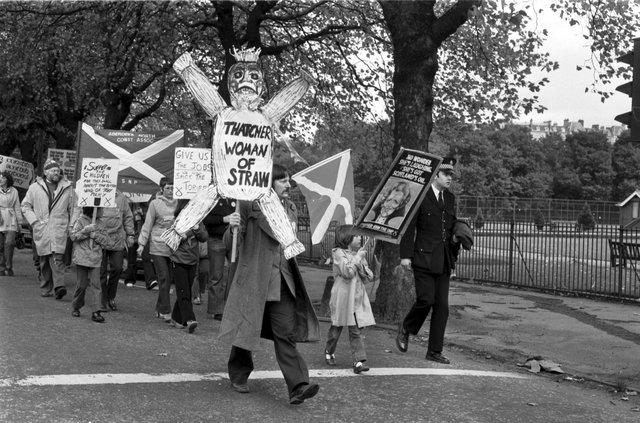
6. Glasgow in 1980
The Scottish National Party hold a demonstration in Glasgow in October 1980. Photo: tspl
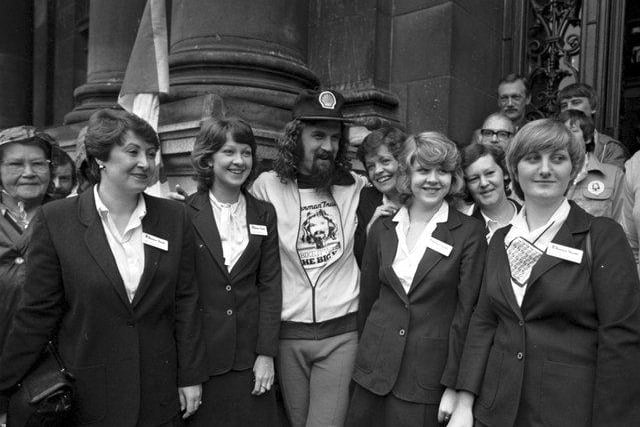
7. Glasgow in 1980
Scottish entertainer Billy Connolly leaves Glasgow on a sponsored cycle ride to Inverness in August 1980. Billy with some of the girls from the Ellerman Travel company. Photo: tspl
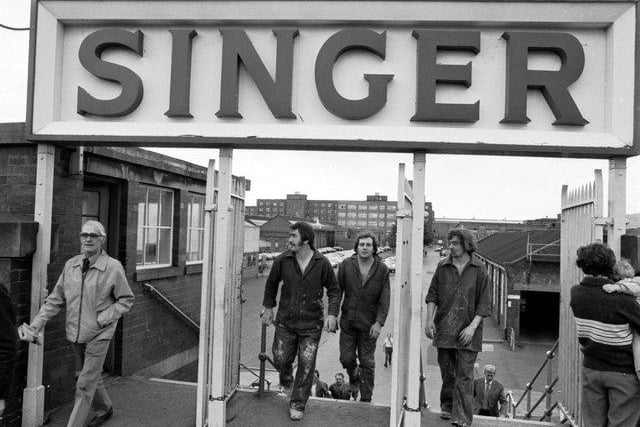
8. Glasgow in 1980
Workers leaving the Singer sewing machine factory in Clydebank, a major employer in the Greater Glasgow region, which finally closed down in 1980 Photo: tspl
